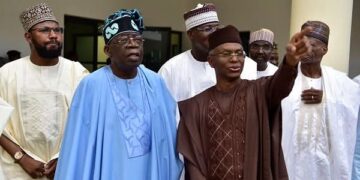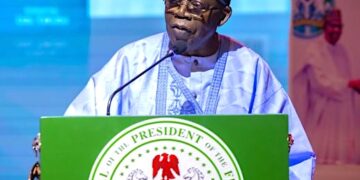Once again, the silence of Nigeria’s lecture halls is about to echo with the frustration of its lecturers. The Academic Staff Union of Universities (ASUU) has announced a two-week total and comprehensive warning strike, beginning midnight on Monday, October 13, 2025.
For many Nigerians, this is a familiar scene in a long-running drama between the union and the Federal Government — a cycle of promises made, promises broken, and promises renewed without fulfilment.
At the centre of this latest impasse is the Federal Government’s continued failure to fully honour the 2009 ASUU-FGN Agreement, a document that has become more symbolic than functional. Despite the government’s claim of progress — including the release of ₦50 billion for Earned Academic Allowances and another ₦150 billion captured in the 2025 budget for needs assessment — the lecturers remain unconvinced. To ASUU, these are not gestures of goodwill but partial settlements of long-standing debts.
It is difficult to fault ASUU entirely. Public universities across the country are in decay. Laboratories are outdated, libraries are underfunded, and lecturers are often forced to work under demoralizing conditions. Meanwhile, the nation continues to lose thousands of students annually to foreign institutions — a costly brain drain that bleeds both money and talent.
Yet, there is another side to this tragedy. Every strike further weakens the same system ASUU seeks to protect. Students bear the brunt — losing academic time, motivation, and sometimes entire years of study. Parents lose money and patience. Employers lose confidence in the calendar of Nigerian universities. In the end, education itself becomes the victim.
Both the government and ASUU must therefore move beyond brinkmanship. Negotiations should not be an afterthought but a continuous, transparent process anchored on mutual respect and accountability. Government must demonstrate sincerity by implementing agreements in full and on time, while ASUU must adopt more innovative forms of engagement that do not paralyze the academic system.
The truth is that Nigeria cannot afford another prolonged disruption in its tertiary education. The country’s future depends on the stability of its universities, the quality of its teachers, and the assurance that education is indeed a national priority — not a seasonal bargaining chip.
ASUU’s strike is not merely a protest; it is a symptom of a deeper dysfunction in governance and prioritization. Until these structural issues are addressed, the cycle of strikes and half-hearted reconciliations will continue — to the detriment of students, parents, and the nation’s development.




































